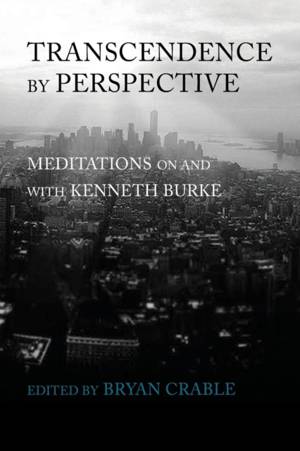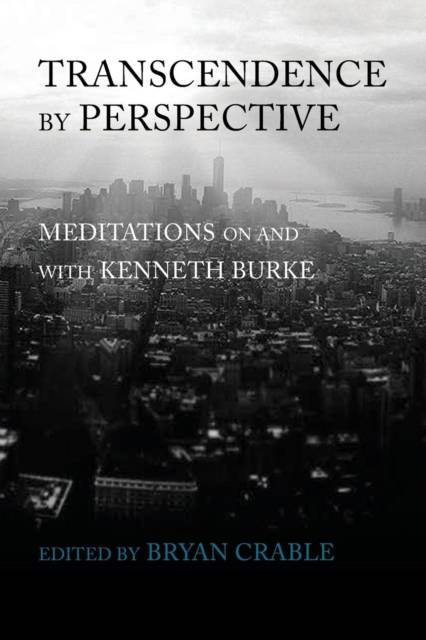
- Retrait gratuit dans votre magasin Club
- 7.000.000 titres dans notre catalogue
- Payer en toute sécurité
- Toujours un magasin près de chez vous
- Retrait gratuit dans votre magasin Club
- 7.000.0000 titres dans notre catalogue
- Payer en toute sécurité
- Toujours un magasin près de chez vous
Transcendence by Perspective
Meditations on and with Kenneth Burke
Livre broché | Anglais
40,95 €
+ 81 points
Description
TRANSCENDENCE BY PERSPECTIVE: MEDITATIONS ON AND WITH KENNETH BURKE represents a fresh attempt to think with Kenneth Burke regarding the relationship between human symbolicity and social change. The essays, by both prominent and up-and-coming young scholars, are organized around the three conceptions of transcendence that, the editor argues, can be found in Burke's body of work: transcendence as a curative method; transcendence as a dialectical process; and transcendence as our human condition. The first, from Burke's earliest works, reflects an attempt to resolve conflicts between opposing principles, beliefs, or persons by adopting a "higher" point of view. The second, corresponding to much of Burke's work from the 1940s and 1950s, represents Burke's efforts to envision a dialectical process that would result not simply in the resolution of individual conflicts, but the reordering of the frustrating stalemate of entrenched social oppositions. The third form, representing Burke's final decades of work, positions transcendence as peculiar to the human symbolic condition-and as the source of our temptation to treat the "here and now" in terms of some greater "beyond." Going beyond this interpretation of Burkean texts, however, the chapters apply these three notions of transcendence to the analysis of such topics as race in America, President Obama, Hilary Clinton's health care reform efforts, Virginia's apology for slavery, British colonialism, Dr. Phil, aesthetics, and industrial agriculture. Taken together, the volume indicates new directions for Burkean scholarship on the critical appreciation of our lives as embodied symbol-users, and of the "Human Barnyard" as a whole. BRYAN CRABLE is Professor of Communication and Director of the Waterhouse Family Institute for the Study of Communication and Society at Villanova University. He is the author of Ralph Ellison and Kenneth Burke: At the Roots of the Racial Divide (University of Virginia Press, 2012), has twice received the Charles Kneupper Award from the Rhetoric Society of America, and in 2011 received the Kenneth Burke Society's Lifetime Achievement Award. His essays have appeared in The Quarterly Journal of Speech, Rhetoric Society Quarterly, Rhetoric Review, Argumentation & Advocacy, Human Studies, Communication Quarterly, and Western Journal of Communication. CONTRIBUTORS: Gregory Clark, Richard M. Coe, Bryan Crable, John B. Hatch, Cathryn Hill, Theon E. Hill, Abigail Selzer King, Andrew King, James F. Klumpp, and John S. Wright.
Spécifications
Parties prenantes
- Editeur:
Contenu
- Nombre de pages :
- 218
- Langue:
- Anglais
Caractéristiques
- EAN:
- 9781602355286
- Date de parution :
- 07-07-14
- Format:
- Livre broché
- Format numérique:
- Trade paperback (VS)
- Dimensions :
- 152 mm x 229 mm
- Poids :
- 326 g

Les avis
Nous publions uniquement les avis qui respectent les conditions requises. Consultez nos conditions pour les avis.





